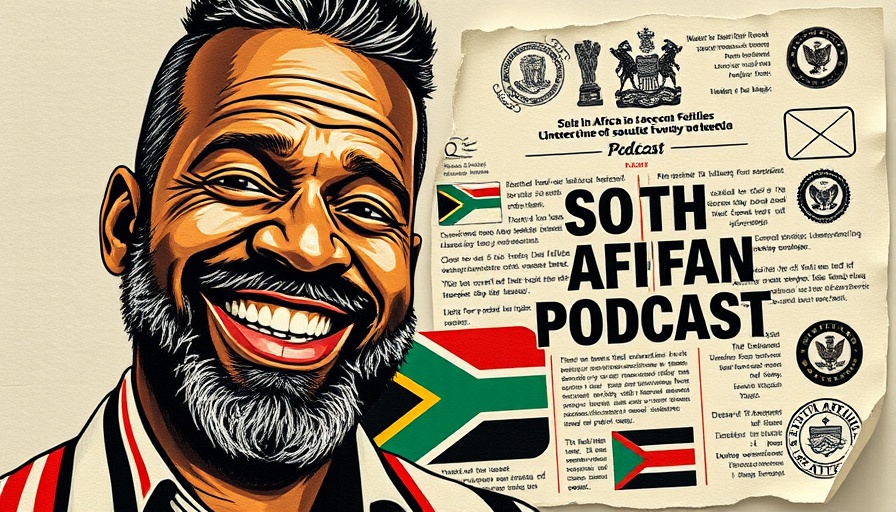
The Political Landscape: Social Media in South Africa
In recent years, social media has dramatically reshaped the political landscape in South Africa, particularly with platforms like TikTok gaining traction among younger demographics. The case involving TikTok satirist Mchunu is a stark example of how satire can clash with political authority. This incident highlights a potential overreach by government bodies like the Hawks, the Directorate for Priority Crime Investigation, which have faced criticism for their responses to criticism from social media. The tension between humorous satire and serious political oversight may signify a turning point in how politicians engage with dissent.
Historic Context: Satire and Political Backlash
Satire has long been a tool for social commentary, allowing individuals to critique those in power. In South Africa, especially during the last decade, political satire has often been a lens through which the public understands and reacts to corruption investigations and state policies. The backlash against comedians or social critics reflects a broader attempt by authorities to control narratives during politically tumultuous times, as seen during the last elections that shifted power dynamics.
Diverse Perspectives on Freedom of Expression
While Mchunu's situation may appear to be an isolated incident, it invites broader discussions about the balance between freedom of expression and the responsibilities that come with it. Perspectives among professionals vary—while some defend Mchunu's right to express his art through satire, others may argue that there should be boundaries, especially against potentially harmful misinformation. This dichotomy highlights the struggles surrounding media freedom and social accountability in South African politics.
Future Predictions: The Evolution of Political Engagement
Looking forward, one can anticipate an evolving dynamic between political entities and their engagement with social media. As upcoming municipal and national elections loom, it seems likely that political figures will either embrace or combat this trend. The effectiveness of satire as a political tool will undoubtedly influence how parties such as the ANC, DA, and EFF adjust their campaign strategies amidst an increasingly digital landscape.
The Economic Impact: Social Media’s Role in Political Discourse
As social platforms enhance political discourse, they also influence economic recovery discussions. Given the current economic challenges—like rising unemployment rates and inflation—addressing these issues in the public sphere, through humorous yet pointed satire, can galvanize citizens toward civic action. The TikTok incident aligns with broader discussions surrounding youth unemployment and the need for innovation in political engagement initiatives.
Call to Action: Understanding the Intersection of Politics and Art
As professionals, it’s imperative to understand how political engagement shapes societal values. Engaging with these discussions not only informs our perspectives but also empowers us to advocate for better governance and accountability. Stay tuned to ongoing dialogues about the intersection of platforms like TikTok and political freedom in South Africa. This awareness can lead to more constructive discourse, improving the public's role in policy making and reforms.
 Add Row
Add Row  Add
Add 




Write A Comment